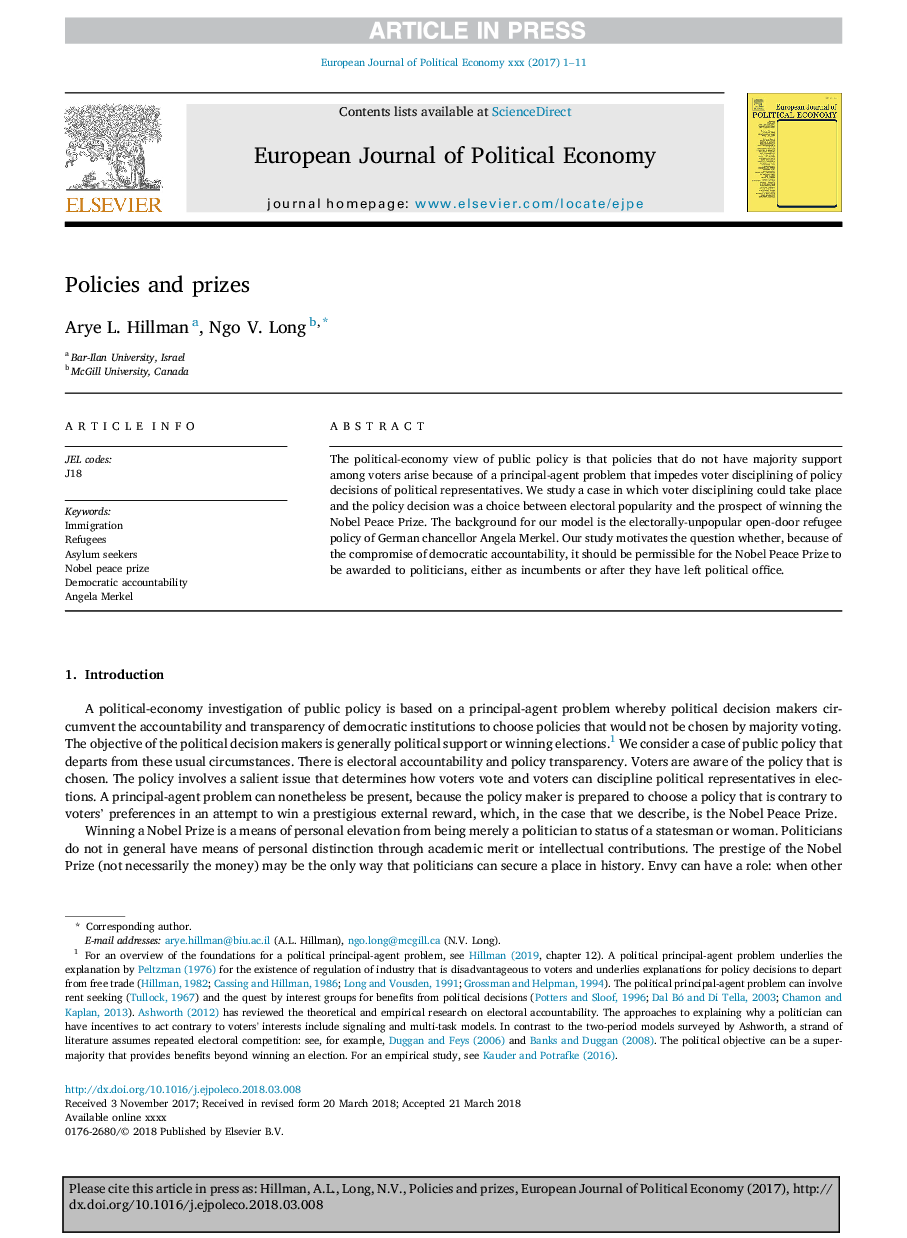| Article ID | Journal | Published Year | Pages | File Type |
|---|---|---|---|---|
| 11016156 | European Journal of Political Economy | 2018 | 11 Pages |
Abstract
The political-economy view of public policy is that policies that do not have majority support among voters arise because of a principal-agent problem that impedes voter disciplining of policy decisions of political representatives. We study a case in which voter disciplining could take place and the policy decision was a choice between electoral popularity and the prospect of winning the Nobel Peace Prize. The background for our model is the electorally-unpopular open-door refugee policy of German chancellor Angela Merkel. Our study motivates the question whether, because of the compromise of democratic accountability, it should be permissible for the Nobel Peace Prize to be awarded to politicians, either as incumbents or after they have left political office.
Related Topics
Social Sciences and Humanities
Economics, Econometrics and Finance
Economics and Econometrics
Authors
Arye L. Hillman, Ngo V. Long,
